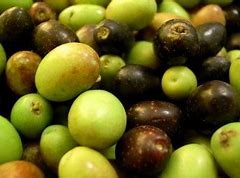Are you curious about the tantalizing world of fermented olives? If you’ve ever wondered how these delectable morsels are crafted, the various types available, and the numerous health benefits they offer, you’ve come to the right place.
In this comprehensive guide, we’ll delve into the art of fermenting olives, explore the different types, such as Greek-style, Moroccan-style, and Italian-style fermented olives, and uncover the remarkable health advantages they bring. From improved digestive health to a boosted immune system, we’ll uncover the range of benefits that fermented olives offer.
We’ll provide insights on how to incorporate fermented olives into your diet and offer tips for choosing and storing them. It’s not all sunshine and roses, as we will also shine a light on the potential side effects and risks associated with consuming fermented olives.
So, if you’re ready to embark on a journey into the world of fermented olives, let’s dive in together and unlock the secrets of this ancient culinary delight.
What Are Fermented Olives?

Fermented olives are a traditional food product that undergoes a natural fermentation process, resulting in olives that are rich in probiotics and antioxidants.
This natural fermentation process involves the use of beneficial bacteria that break down the sugars in the olives, producing lactic acid and creating an environment that enhances the growth of probiotics. These probiotics are beneficial for gut health and digestion.
The fermentation process also leads to the development of antioxidants, which are known for their ability to combat oxidative stress and support overall health. As a result, fermented olives are not only delicious, but they also offer a range of health benefits, making them a valuable addition to natural remedies for wellness.
How Are Olives Fermented?
The process of fermenting olives involves immersing them in a saltwater brine solution, often accompanied by the use of natural herbs and following the principles of the Mediterranean diet.
What Are the Different Types of Fermented Olives?
There are several distinct types of fermented olives, including the Greek-style, Moroccan-style, and Italian-style, each offering unique flavors and textures.
Greek-style Fermented Olives
Greek-style fermented olives are renowned for their association with the Mediterranean diet and are often preserved in high-quality olive oil, imparting a distinct flavor profile.
These olives are a staple in Mediterranean cuisine and are not only cherished for their rich, tangy taste but also for their numerous health benefits. The fermentation process enhances their probiotic content, promoting gut health and aiding digestion.
The use of olive oil for preservation not only infuses the olives with their own nutritional properties, such as monounsaturated fats and antioxidants, but also helps maintain their texture and flavor. This makes Greek-style fermented olives a delicious and nutritious addition to any meal.
Moroccan-style Fermented Olives
Moroccan-style fermented olives are renowned for their culinary significance and are considered a traditional food staple in Moroccan cuisine, offering a unique blend of flavors.
Their rich, earthy taste is a result of the fermentation process, which enhances the complexity of their flavors. These olives play a pivotal role in Moroccan cuisine, providing a burst of umami and a tangy, slightly tart character to various dishes, such as tagines, salads, and couscous.
The traditional method of fermenting olives has been passed down through generations, reflecting the deep-seated culinary traditions of Morocco. When enjoying a meal in Morocco, one can’t help but appreciate the exquisite balance and depth of flavor that these fermented olives contribute to the culinary experience.
Italian-style Fermented Olives
Italian-style fermented olives are often favored by health-conscious individuals due to their organic nature and are known for their contribution to maintaining a healthy diet.
The process of fermentation not only enhances the flavor of olives but also preserves their natural nutrients, making them an excellent addition to a balanced diet. The organic cultivation methods ensure that the olives are free from synthetic chemicals, making them a healthier option than conventionally grown varieties.
With their rich antioxidant content and probiotic benefits, Italian-style fermented olives are a favorable choice for those looking to support their overall well-being through their dietary choices.
What Are the Health Benefits of Fermented Olives?

Fermented olives offer a myriad of health benefits, including improved digestive health, a boosted immune system, and the presence of polyphenols that contribute to overall wellness.
These brine-cured olives undergo a natural fermentation process, leading to the development of probiotics that support gut health. The probiotics and enzymes formed during fermentation aid in the digestion and absorption of nutrients, helping to maintain a healthy balance of gut microflora.
The polyphenols present in fermented olives act as powerful antioxidants, protecting the body from oxidative stress and inflammation. This combination of nutrition and digestive support makes fermented olives an excellent addition to a well-rounded, health-conscious diet.
Improved Digestive Health
Consuming fermented olives can contribute to improved digestive health by supporting the balance of the microbiome and enhancing the fermentation process within the gut.
These olives contain probiotics that aid in maintaining a healthy gut flora, promoting the growth of beneficial bacteria while inhibiting the overgrowth of harmful ones. This can lead to better digestion, nutrient absorption, and overall gut health.
The fermentation process increases the bioavailability of nutrients, making them easier for the body to absorb. The polyphenols found in fermented olives also have prebiotic properties, fueling the growth of beneficial bacteria in the gut. All these factors work together to support a balanced and healthy gut microbiome.
Increased Nutrient Absorption
The consumption of fermented olives can lead to increased nutrient absorption, ensuring that the body effectively processes essential nutrients and antioxidants.
Fermented olives contain beneficial probiotics and enzymes that support gut health, aiding in the breakdown and absorption of nutrients. This process can enhance the body’s ability to utilize antioxidants, such as polyphenols, which are abundant in olives.
By incorporating fermented olives into your diet, you can optimize your nutritional intake and promote overall wellness.
Boosted Immune System
Fermented olives can contribute to a boosted immune system by providing natural remedies and promoting overall wellness through their beneficial components.
These briny fruits are packed with probiotics, known for their role in supporting gut health and the immune system. The fermentation process enhances their nutritional value, increasing antioxidants and polyphenols, which are known for their anti-inflammatory properties.
Fermented olives contain healthy fats and vitamins, such as vitamin E, that further support immune function. Incorporating fermented olives into a balanced diet can be an effective way to naturally boost immune health and enhance overall wellness.
Reduced Inflammation
The consumption of fermented olives is associated with reduced inflammation, attributed to the presence of antioxidants and their alignment with the principles of the Mediterranean diet.
These antioxidant-rich olives, commonly associated with Mediterranean cuisine, have been found to contain high levels of polyphenols, which are known for their anti-inflammatory properties. Incorporating fermented olives and olive oil into one’s diet may contribute to lower levels of inflammation in the body, promoting overall health and well-being.
The Mediterranean diet, known for its emphasis on fresh fruits, vegetables, and whole grains, has long been linked to various health benefits, and the inclusion of fermented olives further enhances its anti-inflammatory potential.
Lowered Risk of Chronic Diseases
Regular consumption of fermented olives is linked to a lower risk of chronic diseases, highlighting their overall health benefits and organic nature.
These health-conscious, organic olives are rich in polyphenols, which act as powerful antioxidants, supporting heart health and reducing inflammation in the body. Their probiotic properties also aid in promoting a healthy gut microbiome, contributing to improved digestion and strengthened immune function.
The natural fermentation process preserves the olives’ nutritional value and enhances their flavor, making them a delicious and beneficial addition to a health-conscious diet.
How to Incorporate Fermented Olives into Your Diet?

There are numerous ways to incorporate fermented olives into your diet, such as incorporating them into Mediterranean cuisine or as a standalone snack for promoting a healthy gut.
You can add fermented olives to classic Mediterranean dishes like Greek salad, tapenade, or antipasto platters for an authentic and flavorful touch. You can blend them into homemade hummus, couscous salad, or pasta dishes to infuse a rich, tangy flavor.
Including fermented olives in your diet supports healthy eating habits, as they are a source of probiotics and healthy fats, which can contribute to good gut health and overall well-being.
Are There Any Side Effects of Consuming Fermented Olives?
While fermented olives offer numerous health benefits, it’s important to be mindful of potential side effects such as increased sodium intake and the possibility of allergic reactions.
High sodium intake from fermented olives can contribute to health issues like high blood pressure and cardiovascular complications. Individuals with existing allergies may experience adverse reactions when consuming fermented olives, as they contain potential allergens.
There’s a risk of contamination during the fermentation process, which could lead to foodborne illnesses. It’s crucial to consume fermented olives in moderation and be aware of these potential side effects to ensure a safe and healthy dietary experience.
Increased Sodium Intake
Consuming fermented olives may lead to an increased sodium intake, which should be considered, especially for individuals who are health-conscious or mindful of food preservation methods.
Excessive sodium intake can lead to high blood pressure and other cardiovascular issues, posing a particular concern for those prioritizing their health. For individuals focused on natural food preservation, the high sodium content in fermented olives can conflict with their desire for minimally processed, preservative-free foods.
Thus, carefully weighing the benefits and potential drawbacks of consuming fermented olives is essential for maintaining a balanced and healthy diet.
Potential Allergic Reactions
Some individuals may experience potential allergic reactions to fermented olives, highlighting the importance of considering organic options and minimizing the risk of contamination.
This is particularly relevant as organic olives are cultivated without synthetic pesticides and fertilizers, reducing the likelihood of exposure to harmful residues. The risk of contamination during the fermentation process can be mitigated through strict quality control measures and adherence to organic production standards.
Choosing organic fermented olives not only supports sustainable agriculture practices but also promotes better food safety for those with allergies or sensitivities.
Risk of Contamination
There is a potential risk of contamination associated with fermented olives, reinforcing the need to prioritize their quality and wellness benefits when considering consumption.
This risk of contamination underscores the significance of ensuring that fermented olives undergo thorough quality control and proper fermentation processes. When quality is maintained, fermented olives can offer an array of wellness benefits, including being rich in probiotics, healthy fats, and antioxidants, which contribute to gut health, heart health, and overall well-being.
Embracing high-quality fermented olives not only reduces potential health risks but also enhances the potential for health-boosting properties.
Tips for Choosing and Storing Fermented Olives
When selecting and storing fermented olives, it’s essential to consider factors such as their use in Mediterranean cuisine and the diverse range of olive products available for optimal enjoyment.
It’s important to choose olives that suit your culinary preferences, whether you prefer them in salads, as toppings, or in cooking. Look for olives stored in brine or extra virgin olive oil for ideal preservation and flavor.
Keep the olives in a cool, dark place to maintain their quality, and ensure that they are tightly sealed to prevent air exposure. With these practical tips, you can enhance your dishes with the rich flavors of fermented olives.
Frequently Asked Questions
What are fermented olives?
Fermented olives are olives that have been cured using a fermentation process. This process involves submerging the olives in a brine solution, allowing for natural bacteria to grow and ferment the olives. This not only gives the olives a unique and tangy flavor but also unlocks numerous health benefits.
What are the health benefits of fermented olives?
Fermented olives are a rich source of probiotics, which are beneficial bacteria that help balance the gut microbiome and improve digestion. They are also high in antioxidants, which can help protect against chronic diseases and boost the immune system.
How do fermented olives compare to regular olives?
Fermented olives contain a higher concentration of probiotics and antioxidants compared to regular olives. The fermentation process also breaks down the natural sugars in olives, making them a healthier option for those watching their sugar intake.
Can fermented olives help with weight loss?
Yes, fermented olives can aid in weight loss as they are low in calories and high in fiber. The probiotics in fermented olives also help promote a healthy gut, which has been linked to weight management.
Are there any potential side effects of consuming fermented olives?
Fermented olives are generally safe for consumption, but some people may experience digestive discomfort or bloating due to the probiotics. It is important to introduce them slowly into your diet and consume them in moderation.
How can I incorporate fermented olives into my diet?
Fermented olives can be enjoyed as a snack, added to salads or pasta dishes, or used as a topping for pizza. They can also be blended into a spread or dip for a flavorful and healthy option.

